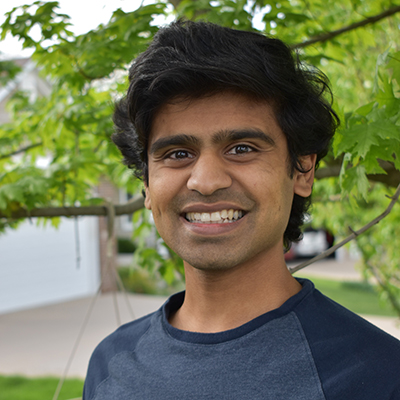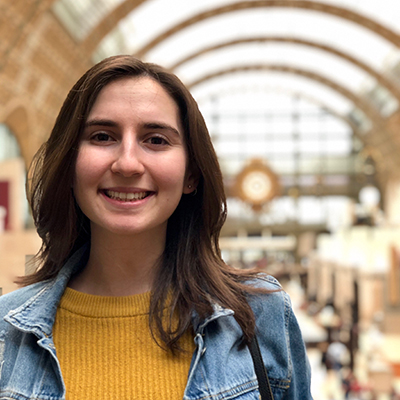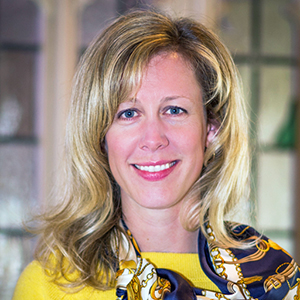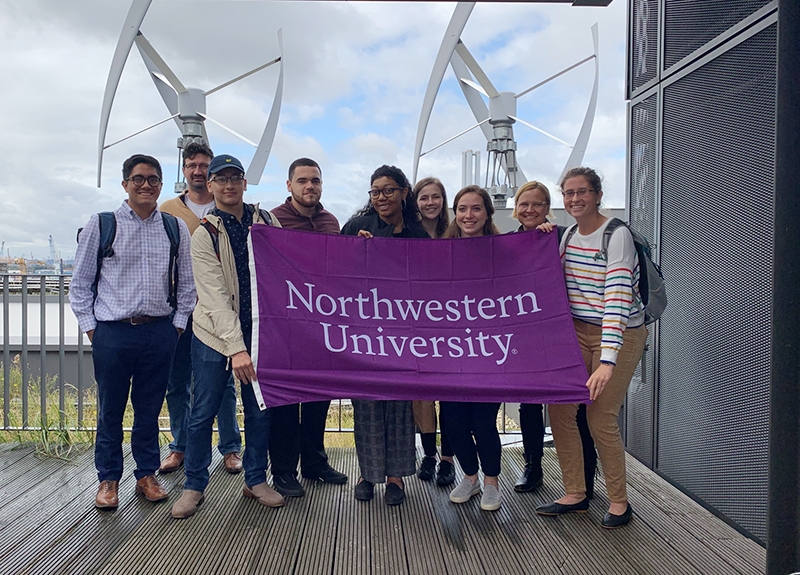Northwestern graduates are stepping out into the world this year, as professionals and scholars, ready to address some of the most pressing issues in sustainability and energy. Fueled by years of interdisciplinary experiences in the classroom and beyond, they are poised to become future leaders in these rapidly evolving fields. Read on to learn about their immediate plans after graduation this year, and what drives them forward.
Akash Borde graduated with a bachelor’s degree in computer engineering and a master’s degree in mechanical engineering (energy and sustainability track) from the McCormick School of Engineering. His master’s thesis title is: An Analysis of Hydrogen as an Energy Carrier in Microgrids.
What are your plans after graduation?
I'm joining Tesla as an Electrical Design Engineer, working in Palo Alto, California.
How will you pursue energy and/or sustainability in your work and why is this work meaningful for you?
I'll be designing electronics and computer systems for electric vehicles and self-driving car technology. This work is meaningful to me because I get to build products that not only help people live sustainably, but also make sustainability mainstream. Tesla's mission is to accelerate the world's transition to sustainable energy, and I'm excited to be a part of it.
What did you learn at Northwestern that you expect to carry with you into the future?
Besides the whole-brain technical skills I learned over the course of my degrees, and the practical engineering I learned on NUsolar (Northwestern's solar car team), I think Northwestern showed me how much is possible when you combine hard work, high-achievers, and a good amount of luck and privilege.
Dennis Kontorovich will graduate with a master’s degree from the Kellogg School with a focus on the Energy and Sustainability Pathway.
What are your plans after graduation?
I plan to work on a residential energy storage startup, Blip Energy, which I co-founded while at Northwestern. I also have a position to return to at Bain & Company in December, where I hope to work in the energy practice.
How will you pursue energy and/or sustainability in your work and why is this work meaningful for you?
I will pursue energy and sustainability in my work by always seeking out opportunities to learn more about the space. This work is meaningful and exciting to me because it is changing so quickly, and it has the chance to literally change the world. I want to wake up every day knowing that what I'm doing is making a difference on a global scale and working in energy gives me that opportunity.
What did you learn at Northwestern that you will carry with you into the future?
Northwestern, Kellogg, and ISEN all provided me with countless opportunities to explore the energy space and really figure out where I fit in best. Going forward, I'm going to continue asking the hard questions and exploring wherever this industry may go. Finally, the network of students, professors, and alumni has been literally breathtaking with their willingness to help however possible.
Emma Feldman will graduate with a bachelor’s degree in chemical engineering from the McCormick School of Engineering and ISEN’s certificate in sustainability and energy.
What are your plans after graduation?
After graduation I will be working at Samsung Austin Semiconductor as part of the water and wastewater engineering team.
How will you pursue energy and/or sustainability in your work and why is this work meaningful for you?
This work is meaningful to me because I will be able to work within a large company to manage their water resources in a sustainable way. Corporations are the largest contributors to the climate crisis and by working to reduce the footprint of this facility I hope to positively impact not only the company, but also the neighboring city.
What did you learn at Northwestern that you will carry with you into the future?
One thing that I learned at Northwestern that I plan to carry with me is that all water issues are local and need to be approached in a manner that is specific to that region.
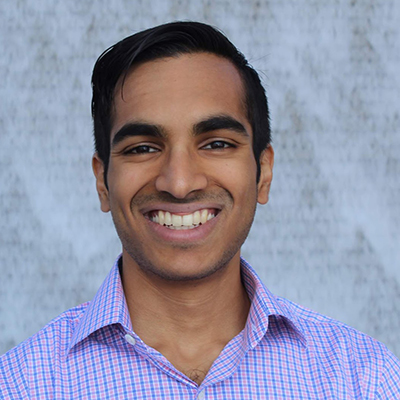 Gaurav Gupta will graduate with a bachelor’s degree and a master’s degree in mechanical engineering from the McCormick School of Engineering.
Gaurav Gupta will graduate with a bachelor’s degree and a master’s degree in mechanical engineering from the McCormick School of Engineering.
What are your plans after graduation?
After graduating from Northwestern, I'll be joining ExxonMobil's Upstream division in Houston, Texas. I had the opportunity to pursue three co-op terms at Dow Chemical during my time as an undergrad, which taught me invaluable skills about working in manufacturing, and specifically the chemical industry. This past summer I interned at ExxonMobil's Chemicals company, where I came to better appreciate the importance of energy and sustainability in the modern day, and the role that big oil and gas companies play in safely, economically, and sustainably meeting the world's growing energy needs.
How will you pursue energy and/or sustainability in your work and why is this work meaningful to you?
The global improvement in overall standard of living and quality of life is inherently linked to its energy demands. Quite simply, everything requires energy. Large oil and gas companies like ExxonMobil are faced with the challenge of meeting those energy needs while also accounting for the negative environmental impacts of using traditional energy sources. As the global population grows, especially in underdeveloped economies in Asia and Africa, the demand for reliable and affordable energy will grow as well. At the same time, though, climate change is becoming an existential threat to our safety and well-being that must be addressed quickly and effectively. This "dual challenge" is going to become more important to reconcile in the future, and traditional energy companies like ExxonMobil will necessarily have a part to play in resolving these complex issues. I hope to be a part of the solution of providing the world with cost-effective but also sustainable energy for us and future generations to be able to maximize our global potential while minimizing the harmful effects of climate change.
What did you learn at Northwestern that you will carry with you into the future?
My concentration in energy and sustainability as part of my master's curriculum in mechanical engineering helped put into perspective the complexity and urgency of today's energy-related issues. For example, in ISEN410 I learned about the root causes of anthropogenic climate change, and the harmful impacts that ignoring climate change could have on human civilization. In CIVE367, I learned about the sustainability challenges that lie ahead as more and more of the world's population moves to urban environments. And in CIV395 I learned about the myriad energy policy debates going on in the U.S. and the world, especially relating to the juxtaposition of conventional energy sources and their renewable counterparts. Having interned at Exxon the previous summer with relatively little background in the energy industry, it was very useful to return to Northwestern for my master's degree and take classes that taught me in more detail some of the things I saw in the real world during my internship. Having a more well-rounded understanding of the key issues facing energy generation, law, and policy in the modern world will prove invaluable in my future work at Exxon and beyond, especially when considering the vital importance of the energy space today and in the years to come.
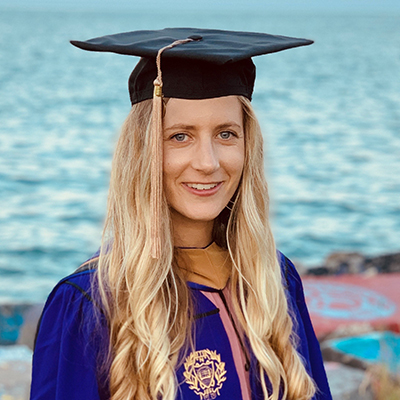 Karina Gerstenschlager will graduate with a master’s degree from the Kellogg School with a finance major and a focus on both the Energy and Sustainability, and Social Impact Pathways.
Karina Gerstenschlager will graduate with a master’s degree from the Kellogg School with a finance major and a focus on both the Energy and Sustainability, and Social Impact Pathways.
What are your plans after graduation?
I will join McKinsey & Company in Chicago as an Associate in the firm’s Operations practice.
How will you pursue energy/sustainability in your work and why is this work meaningful to you?
I believe that environmental sustainability is a coordination issue that requires both business and government intervention. I decided to start by tackling the issue from the business side because in previous roles, I noticed opportunities to simultaneously improve business profits while reducing waste and greenhouse gas emissions, which is a great way to inspire change within companies. McKinsey has an amazing model for incorporating sustainable thinking in client engagements, and I’m excited to apply both this and the toolkit that I learned at Northwestern to help companies around the world scale their sustainability initiatives. I’ll join the firm with a focus on product development and procurement, which feels particularly relevant to sustainability as the world adjusts to life with COVID-19. This work is meaningful to me because it carries the possibility of positively impacting human, animal, and plant life around our planet.
What did you learn at Northwestern that you expect to carry with you into the future?
Several of my courses, including Professor Preston’s Decision Making for Sustainable Business and Professor Besanko’s Federal Policy for Business Leaders, emphasized the importance of considering down-chain impacts of business decisions. Through business and policy examples, we learned how a seemingly positive change can sometimes create challenges or negative impacts down the line. I’m optimistic that bringing this set of examples will help me better evaluate repercussions of strategies so that businesses can make the best possible decisions from all angles. I’m also thrilled to have joined a network of environmentally-minded peers – I believe that through collaboration and hard work, we can create innovative ways to solve the climate crisis.
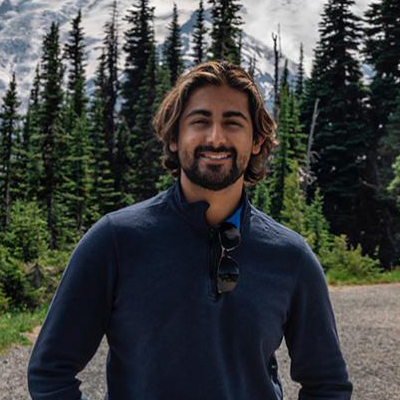 Saif Bhatti will graduate with degrees in industrial engineering from the McCormick School of Engineering and philosophy from the Weinberg College of Arts and Sciences.
Saif Bhatti will graduate with degrees in industrial engineering from the McCormick School of Engineering and philosophy from the Weinberg College of Arts and Sciences.
What are your plans after graduation?
I will be working full time at Renoster Systems, a wildlife conservation firm building ranger detection systems for threats in the African Savannah, and here in the US. I started the company after completing McCormick and ISEN Resnick-Grant funded research in Africa, which quickly grew to take on more partners and interested stakeholders. Now, we have a team of 9 people spanning from California to Singapore, made up of current and recent graduates, as well as professors both at Northwestern and in South Africa.
How will you pursue energy/sustainability in your work and why is this work meaningful to you?
Throughout my time at Northwestern, I have been captivated by finding ways to apply my skills as an engineer to solve real problems in the world. I was fortunate enough to find an application protecting endangered animals like rhinos from poaching. With the help of an ever-growing team and support network at Northwestern and beyond, we hope to bring this product to market early next year. With this research comes another push in the right direction to improve sustainability of species and ecosystems like the savannah.
What did you learn at Northwestern that you expect to carry with you into the future?
At Northwestern, I learnt the value of collaboration. Renoster would not have been possible without the support and engagement of professors across many different disciplines including engineering at McCormick, business development at Kellogg, and marketing development at Medill. From each area, this work has benefited from different perspectives and expert subject-matter knowledge. I also found that engaging people in a cause that they care about helps open a lot of doors; and being able to build a team around a vision is a key skill to be able to drive change.
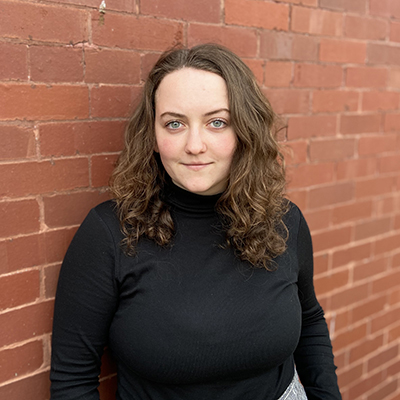 Simone Laszuk will graduate with a bachelor’s degree in anthropology, a minor in Environmental Policy and Culture, and an ISEN certificate in sustainability and energy.
Simone Laszuk will graduate with a bachelor’s degree in anthropology, a minor in Environmental Policy and Culture, and an ISEN certificate in sustainability and energy.
What are your plans after graduation?
I will be pursuing my Master's in Energy and Sustainability at Northwestern University with ISEN and the McCormick School of Engineering.
How will you pursue energy and/or sustainability in your work and why is this work meaningful for you?
I want to work in corporate sustainability and accountability. I want to be able to work with companies that have the resources to do the most good, combating systems of environmental injustice.
What did you learn at Northwestern that you will carry with you into the future?
At Northwestern, I learned that sustainability cannot be viewed through one lens, it is truly interdisciplinary. In order to truly apply sustainability in the real world, you have to consider situations from a variety of different perspectives. Northwestern taught me how important this form of analysis is and taught me to challenge my assumptions throughout my four years.





